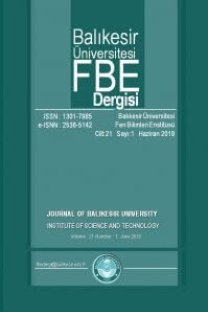Physiological and Molecular Analysis of a Valine Resistant Mutant in Arabidopsis thaliana
Valine resistance, uptake deficiency T-DNA mutagenesis,
- ISSN: 1301-7985
- Yayın Aralığı: Yılda 2 Sayı
- Başlangıç: 1999
- Yayıncı: Balıkesir Üniversitesi
On Curves and Surfaces of Aw(K) Type
Kimya Öğretmen Adaylarının Öz-Yeterlik İnançlarının Bazı Değişkenler Açısından İncelenmesi
İnci Morgil, Nilgün Seçken, A. Seda Yücel
Tensor Product Immersions with Totally Reducible Focal Set
Endemik Nepeta Nuda L Subsp. Lydıae Ph Davis Alt Türünün Morfoloji ve Karyolojisinin İncelenmesi
Serap Öz Aydın, Tuncay Dirmenci
Gönen (Balıkesir) ve Biga (Çanakkale) Çayları’nın Ephemeroptera (Insecta) Limnofaunası
Nazik Özer Narin, Mustafa Tanatmış
Students’ Preconceptions and Misconceptions About Gases
Physiological and Molecular Analysis of a Valine Resistant Mutant in Arabidopsis thaliana
Fen Bilgisi Öğretmen Adaylarının Difüzyon İle İlgili Kavram Yanılgıları
Osman Yıldırım, Canan Nakiboğlu, Olcay Sinan
Kalsine Uleksit’in Amonyum Klorür Çözeltileri İçinde Çözünürleştirilmesi Kinetiği
